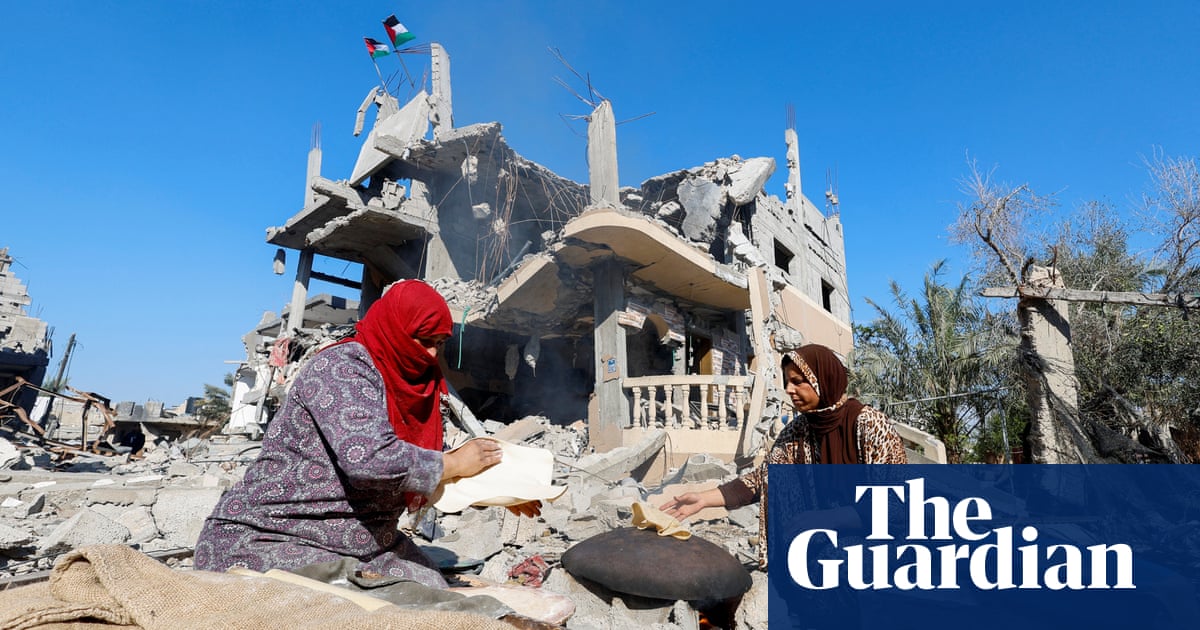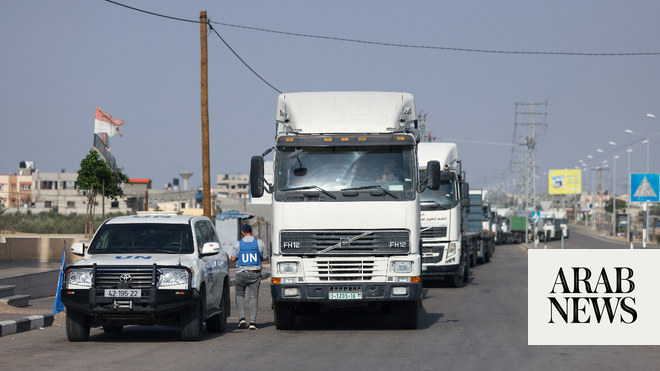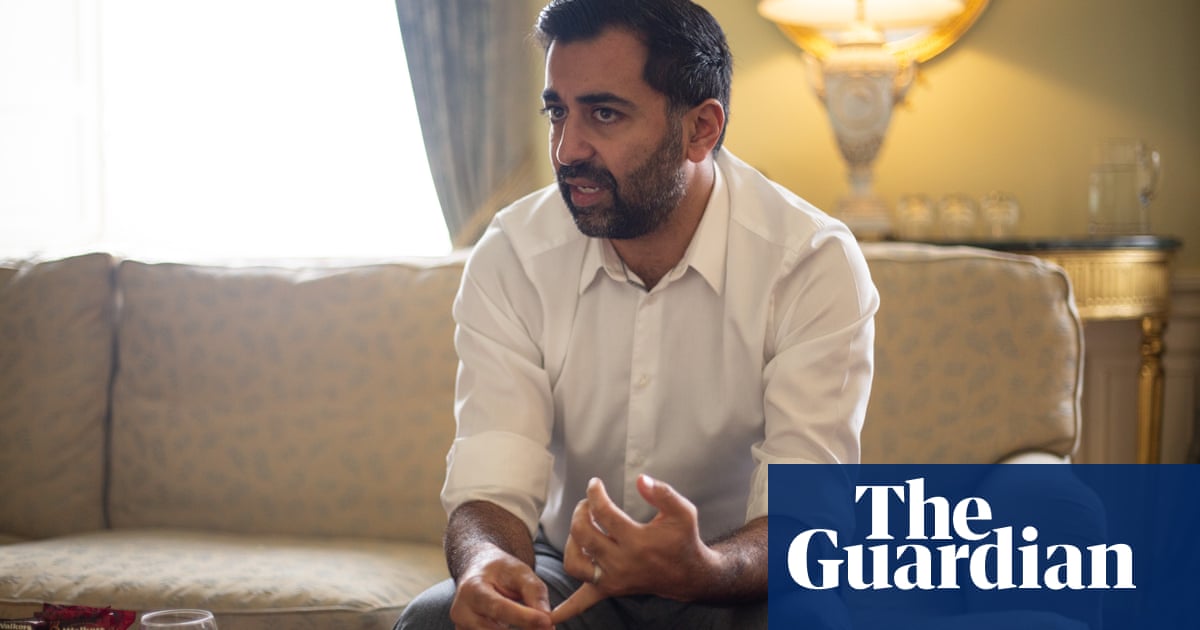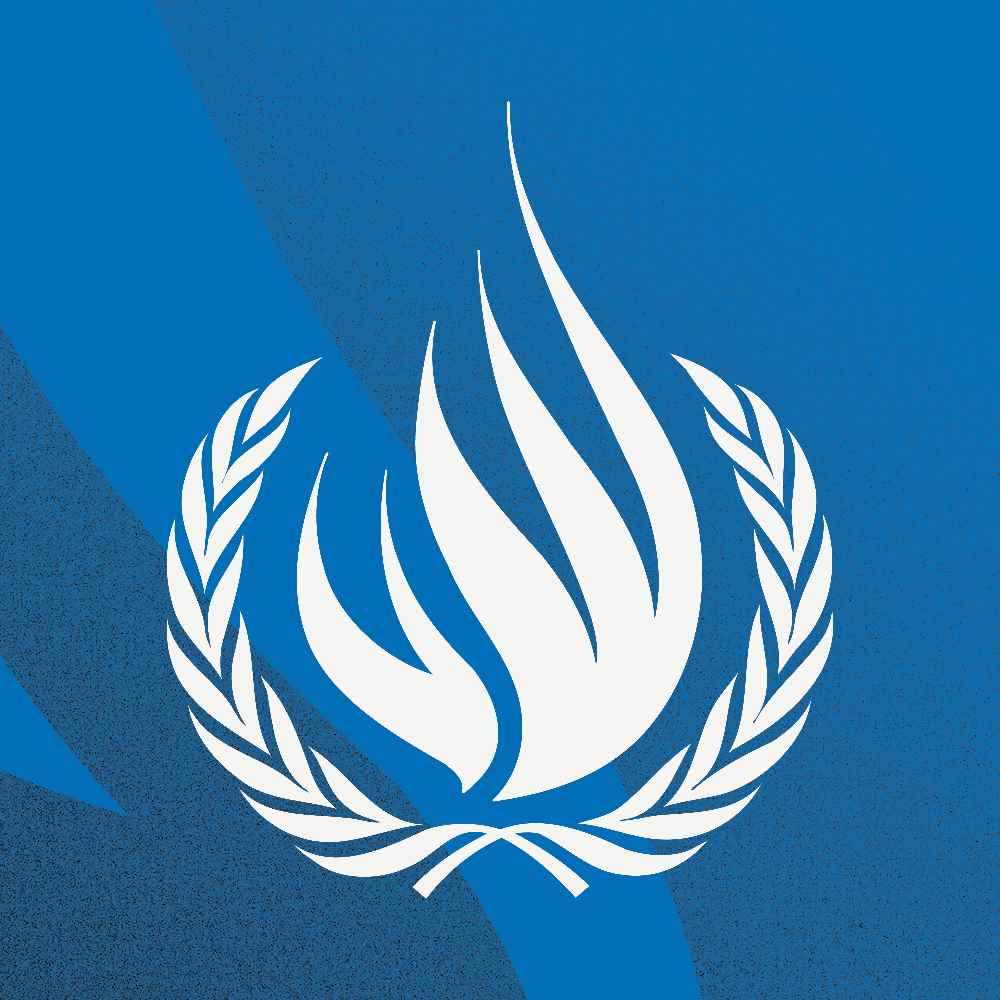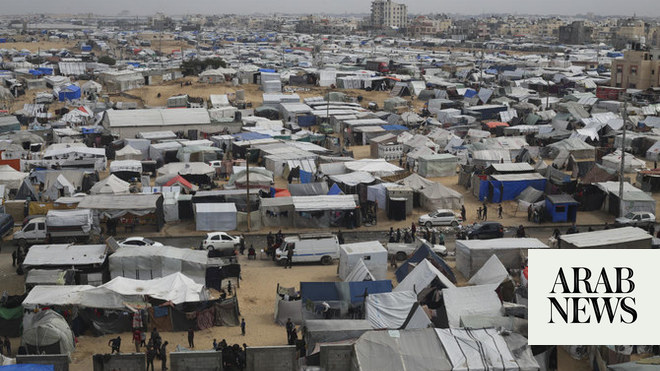
Former diplomat Youssef says Egyptian response to conflict ‘measured’ but adds ‘concerns growing’ over situation in Rafah
Former Israeli ambassador warns hostages need to be released, suggests future Saudi-UAE role in Gaza reconstruction
LONDON: Israel’s war in Gaza could have a lasting effect on its ties with Egypt, Middle East Institute expert Mirette Mabrouk has cautioned. The warning came during a panel discussion to mark the 45th anniversary of the peace deal signed between the two Middle East neighbors.
Mabrouk suggested the perception of Israel among the Egyptian public could be severely damaged by the ongoing conflict, adding that the government in Cairo had “exerted an enormous amount of self-control” but would not be able to ignore public attitudes indefinitely.
“After Gaza, it is impossible, impossible to dissociate the societal effects of what is happening on any economic relationship going forward,” she said.
“At the moment it is impossible to overestimate national feeling in Egypt about what is happening in Gaza, and this is important, because the government cannot afford to discount public opinion.”
Her thoughts were echoed by the former assistant secretary-general for humanitarian affairs at the Organization of Islamic Cooperation, Hesham Youssef, who said that while enduring peace between Israel and Egypt was of vital importance to Cairo, so was the future of the Palestinians.
“This treaty has been strategically important … for the whole region,” Youssef said, adding that without it, it was unlikely peace would have followed between Israel and Jordan, or that the Abraham Accords would have ever become viable.
“Egypt paid a very high price for the treaty,” he said. “During the 45 years, Egypt never put its commitments in doubt in relation to the peace treaty.”
Former Knesset member Ksenia Svetlova said Egypt had always been clear with Israel on what it saw as the doorway to a lasting regional peace for Israel, including with Lebanon and the Palestinians.
“Egypt was very keen and very straightforward with Israel from the very beginning — by the beginning, I mean the seminal speech of President Anwar El-Sadat, the hero of peace, in the Israeli Knesset, when he said exactly that: We need to work for peace … peace in the Middle East, not only peace between Israel and Egypt,” she said.
“We have seen huge development … that shows that cooperation indeed can happen, but I can tell you that Egypt, again, it says today to Israelis, just like it said to Israelis back in 1977 when El-Sadat visited the Knesset, there cannot be a huge movement, a real movement toward normalization … until there (is) a way out, a solution, for the conflict with the Palestinians.”
Youssef said that, while not jeopardizing the peace with Egypt, the ongoing war in Gaza was a source of great concern in Cairo.
“After Oct. 7, Egypt recognized the gravity of what happened, and its impact on the Israel people … and the Egyptian reaction was quite measured. But as time passed by, and the ferocity of the attacks increased, and the number of civilian casualties multiplied, Egyptians’ concerns also grew.”
He added that the US needed to take a greater role in pushing for peace and a two-state solution, which Egypt, he said, was working on closely with Washington.
“This is Egypt’s destiny, and Egypt’s efforts will continue, relentlessly, until peace is achieved,” he said.
Mabrouk added that since the outbreak of the war, “while economic relations between the two countries are steady … at the moment, everything appears to be on hold” between Israel and Egypt.
She added that in part this was due to the response of external actors to the conflict, citing a drop of 50 percent in Red Sea traffic through the Suez Canal and the accompanying collapse of business in the Israeli port town of Eilat as examples of how the conflict was damaging economic relations between the two nations.
Former Ambassador of Israel to Germany Jeremy Issacharoff praised the enduring peace between Israel and Egypt, but warned while Cairo had a “very considerable role” to play in the peace process, until the Israeli hostages taken by Hamas on Oct. 7 were released, the situation would remain hard to resolve.
“I think it’s going to really damage a lot of the possibilities of actually creating a post-war reality that leads to a radical change in the Israeli-Palestinian conflict,” Issacharoff said of the hostages still being held in Gaza.
“Egypt can play a very considerable role regarding the issue of the hostages. It is very important to understand just how crucial this issue is in the public eye of Israelis today.”
Issacharoff added that Gulf states, including Saudi Arabia, could make a huge difference to the future of Gaza, adding: “Bringing Saudi Arabia into the situation could be a vital factor, along with the UAE, in stabilizing the situation in Gaza in terms of reconstructing, and using all the different elements that can be used in order to begin to establish stability and begin to give some sort of stable infrastructure to that area.”
He added that Egypt would play a crucial role, too, in working with the Palestinian Authority to restore order in Gaza and to resurrect the two-state solution.
“Egypt has a vital role with the PA,” he said. “I think the PA — I don’t see any alternative of having it come and re-establish its own rule in Gaza.”
He added: “We have, along with the revitalized PA, to find a way to address and avert the almost imminent or already existent humanitarian crisis in Gaza, but also in stabilizing the West Bank — otherwise, again, we are not going forward.”




